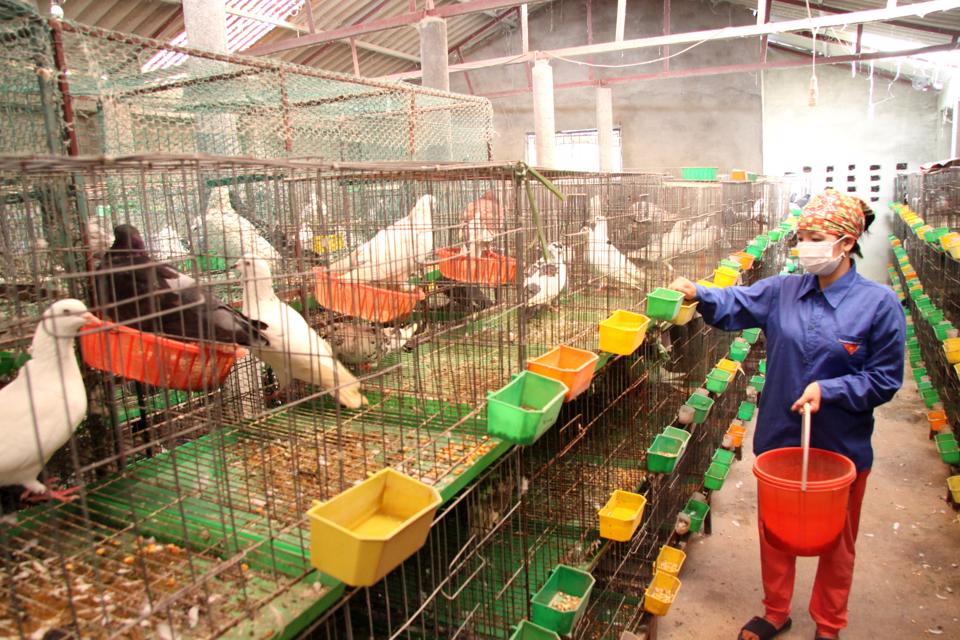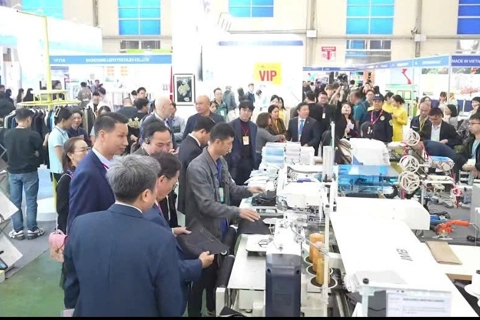Farm economy – core component for Hanoi rural development
Such an economic model plays a major role in the land consolidation process and the restructuring of the labor market, which helps rural workers shift to other non-agricultural sectors.
Farm economy remains a key component for Hanoi to drive rural development, but much work remains to be done for the sector to make a greater contribution to the economy.
| A pigeon farm in Tan Hung Commune, Soc Son District. Photo: Tung Nguyen |
Five years ago in an area of 1.3 hectares at Can Huu Commune, Quoc Oai District, Nguyen Van Lam invested VND11 billion (US$481,000) to start a farm economic model, including an orchard of fruit trees, aquaculture, and a pig farm.
Lam later joined hands with the 5S Pro Trading Company and canteens of companies and schools in Quoc Oai District for sustainable distribution of his farm produce. Such a business helps bring in average revenue of VND20 billion (US$875,000) per year and create jobs for 11 locals, for a monthly income of VND6 million ($263) per month.
With similar success, an 11-hectare aquaculture field of Nguyen Dinh Vien in Thu Phu Commune, Thuong Tin District is generating VND7.5 billion in revenue per year and employs 20 locals.
They are two examples from over 1,700 farms in Hanoi that are profitable. A report from the Hanoi’s Sub-Department of the Rural Extension, however, showed the development of these farms is uneven, and many farmers were forced to scale down or even suspend operation during the past two years on the Covid-19 pandemic.
Diversification of farm models
Amid growing market demands for high-quality products, many farm owners have been focusing on investing in infrastructures and technologies application into farm production.
Statistics from the municipal Department of Agricultural and Rural Development showed 243 farms in Hanoi are applying hi-technologies in production and operate under value chains.
Director of the Hanoi Rural Extension Sub-Department Nguyen Van Chi acknowledged the figure remains modest, as the majority have not been aware of the benefits of digitalization, e-commerce, and IT application in operation.
In addition to being a part of the city’s push for digitalization, Director of the Hanoi’s Department of Agriculture and Rural Development Chu Phu My said farm economy plays a major role in the land consolidation process and the restructuring of the labor market, which helps rural workers shift to other non-agricultural sectors.
“In the coming months, Hanoi would continue to promote farm economic models under the chain value, along with ecotourism and educational experience,” My added.
According to My, the city would also work on incentives to encourage businesses to invest in large-scale farms for high-quality and safe products.












